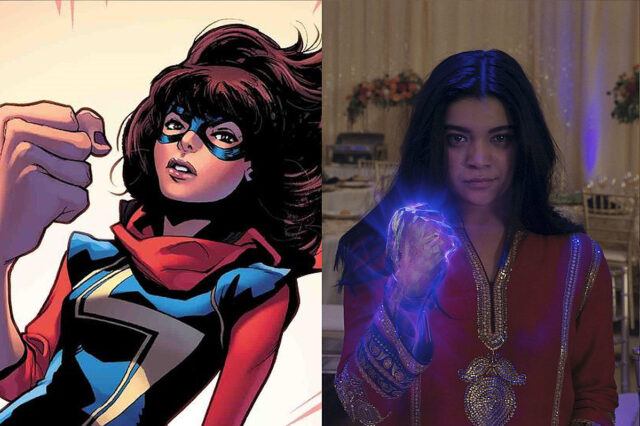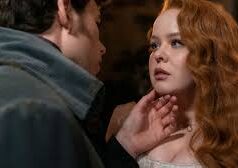Iron Man, the 2008 blockbuster that launched the Marvel Cinematic Universe (MCU), features a sequence in which Robert Downey Jr’s character, Tony Stark, gets kidnapped by a suspiciously Middle Eastern-looking terrorist gang who are filming a hostage video. Faran Tahir, a Pakistani-American actor, plays the principal terrorist Raza, who issues threats to the camera in Urdu.
While he’s doing so, the English subtitles at the bottom of the screen contradict what he’s saying, and to top it off, the film refers to the spoken language as “Arabic.” I recall bursting into laughter in front of a crowded cinema audience in Bangalore during this sequence, the majority of whom, of course, understood Urdu due to its proximity to Hindi.
I couldn’t help but marvel (pun completely intended) at how much things had changed fourteen years later as I sat down with a large grin on my face to watch the first episode of Ms Marvel, the same studio’s online series starring a Pakistani Muslim adolescent.
This show, in my opinion, is critic-proof. Since the character of Kamala Khan (who eventually becomes the spunky heroine Ms Marvel) was established by writer G Willow Wilson and illustrators Adrian Alphona and Jamie McKelvie in the pages of a comic book back in 2013, I’ve been completely enamoured with her. Sana Amanat, a Pakistani-American comic book editor, also played a key role in bringing Kamala to life.
Only when a representation is genuine does it matter. Though there have been periodic spurts of South Asian representation in Hollywood films and TV series in the past, a large portion of them have failed since they were viewed through the prism of western, mostly white, directors and creative teams. These stories and characters seldom progressed beyond the “exotic” label associated with Indian/Pakistani clothing and jewellery, and instead became a jumble of clichés.
Then there’s the thorny issue of Hollywood’s and pop culture’s representation of Muslims and Islam. Only a few years ago, TV shows like 24 and Homeland, as well as films like American Sniper, almost built their entire identity around the harmful “cold-blooded Islamic terrorist” stereotype, even going so far as to suggest that even ordinary Muslims with families had been brainwashed into believing extremist ideology.







